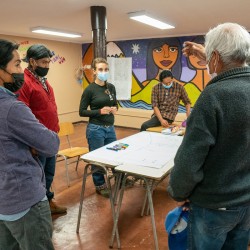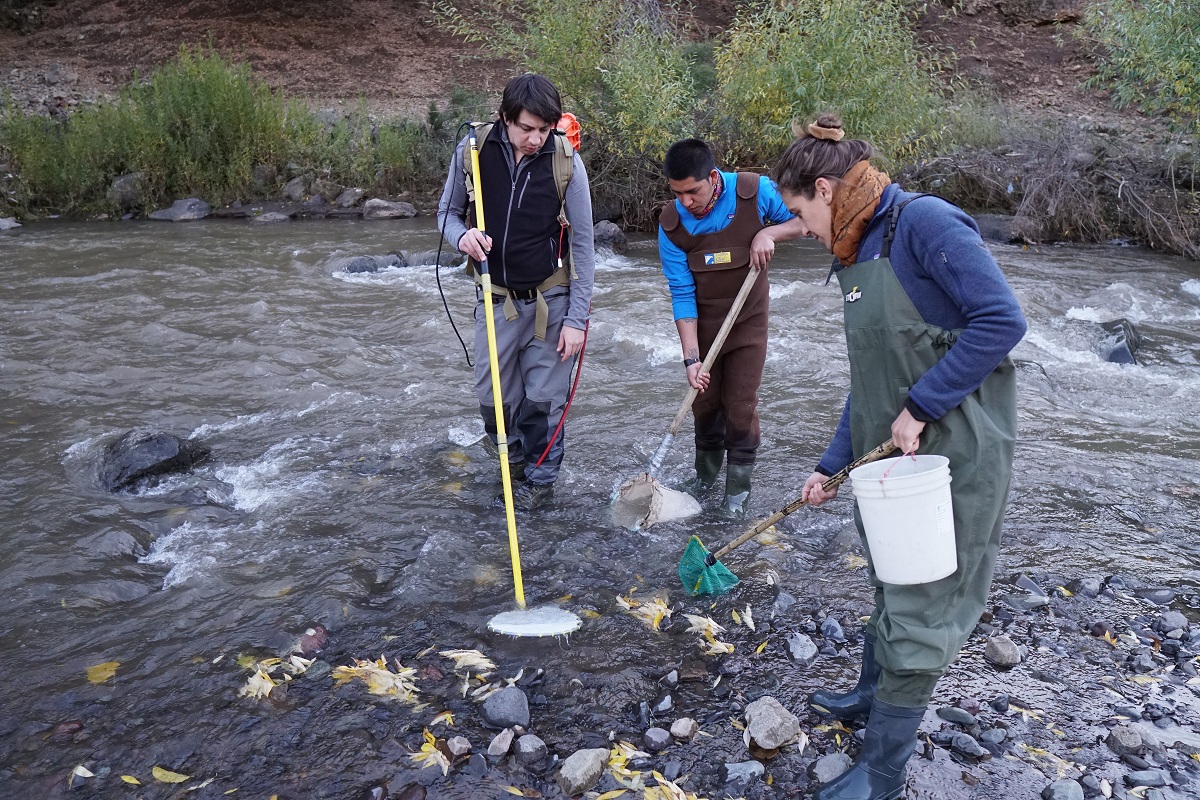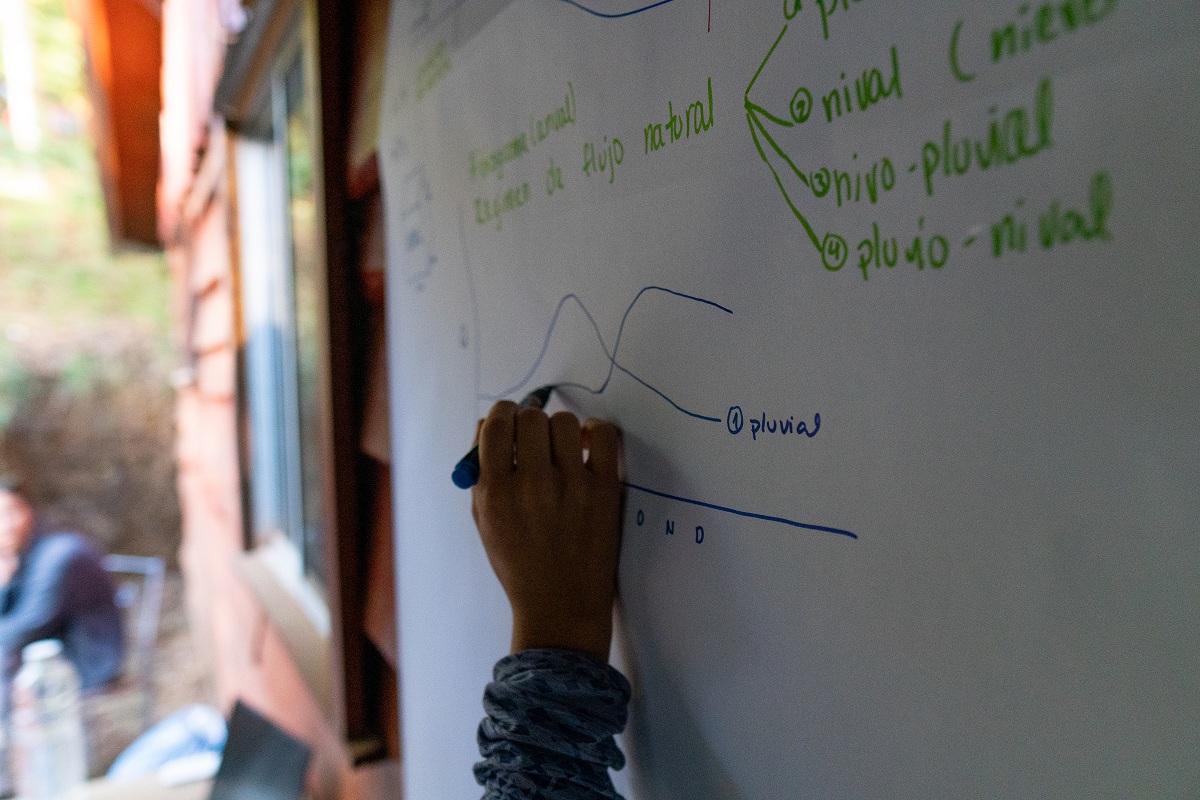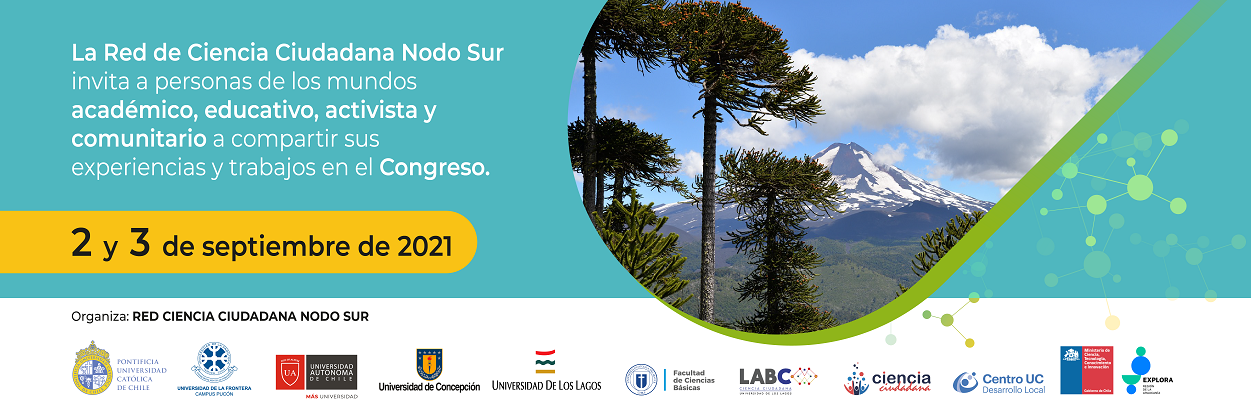The content of this post has been copied and translated from the University of Conceptión.

One of three participatory mapping workshops with Pehuenche communities (Photo: Álvaro González).
Contributing to the creation of spaces for the analysis and discussion of initiatives on participatory citizen science in Chile and Latin America, Camila Bañales-Seguel, a student of the Doctorate in Environmental Sciences program at the University of Conceptión, is one of the organizers of the National Congress of Citizen Sciences 2021, through her participation in the South Node of the National Network of Citizen Science.
This is a free virtual congress that will take place on September 2-3, 2021, bringing together researchers, social leaders, and communities from all over Chile, as well as international guests from Peru, Argentina, and Costa Rica. The objective is to share local experiences through panels and open workshops on topics such as environmental governance, environment, school science, indigenous peoples, and technology.
According to Camila, who is an agricultural engineer, “participatory science methodologies are essential especially in the political context that Chile is going through, where real and binding instances of citizen participation are required, which have an effective impact in making decisions. We have learned that representative democracy in Chile has not been really inclusive, in the same way, scientific research as it has traditionally been conducted is not inclusive either, so I am convinced that this is changing and that there are channels that are being opened to bridge the gap between scientific communities and local communities. In my case, this is being done on the basis of respect, reciprocity, responsibility and territorial relevance of the research and methodologies”.

The South Node of the Citizen Science Network is a group of people and institutions linked to open science (Photo: Álvaro González).
OPEN SCIENCE
The South Node of the Citizen Science Network is a group of institutions and people linked to open and participatory science from Maule to Magallanes, which will summon new partners to strengthen the participatory approach in southern Chile. The Network is also made up of members from the Villarrica Campus - Pontificia Universidad Católica de Chile; Autonomous University of Chile (Temuco Campus); the University of Los Lagos; the University of La Frontera, Austral University of Chile, and Catholic University of the Maule, as well as Explora La Araucanía, Lake Watch Initiative, and the Citizen Science Foundation/Fundación Ciencia Ciudadana.
For more information about the event, including registration, please click here.

Through the support of her Doctorate program, Camila has applied adaptive methodologies to the pandemic (Photo: Álvaro González).
QES Climate Justice scholars, Francisco Araos and Allan Yu Iwama are also involved in the organization of this Congress. Francisco and Camila are co-coordinating a panel titled "Indigenous and Local Communities" which will be held in the morning of September 2nd, while Francisco and Allan will be guiding a workshop on participatory mapping that same afternoon.


